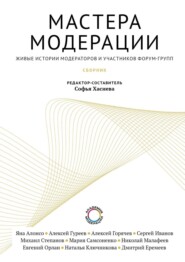По всем вопросам обращайтесь на: info@litportal.ru
(©) 2003-2024.
✖
International Short Stories: French
Настройки чтения
Размер шрифта
Высота строк
Поля
The punishment over and the sentence of the Prussians having been carried out, Trenck returned to the city with his six dragoons and the two servants.
In this affair, as throughout his entire career, Trenck was simply faithful to the rule which he had adopted to guide him through life:
"Always face danger rather than avoid it."
THE PASSAGE OF THE RED SEA
BY HENRY MURGER
For five or six years Marcel had been engaged upon the famous painting which he said was meant to represent the Passage of the Red Sea; and for five or six years this masterpiece in color had been obstinately refused by the jury. Indeed, from its constant journeying back and forth, from the artist's studio to the Musée, and from the Musée to the studio, the painting knew the road so well that one needed only to set it on rollers and it would have been quite capable of reaching the Louvre alone. Marcel, who had repainted the picture ten times, and minutely gone over it from top to bottom, vowed that only a personal hostility on the part of the members of the jury could account for the ostracism which annually turned him away from the Salon, and in his idle moments he had composed, in honor of those watch-dogs of the Institute, a little dictionary of insults, with illustrations of a savage irony. This collection gained celebrity and enjoyed, among the studios and in the Ecole des Beaux-Arts, the same sort of popular success as that achieved by the immortal complaint of Giovanni Bellini, painter by appointment to the Grand Sultan of the Turks; every dauber in Paris had a copy stored away in his memory.
For a long time Marcel had not allowed himself to be discouraged by the emphatic refusal which greeted him at each exposition. He was comfortably settled in his opinion that his picture was, in a modest way, the companion piece long awaited by the "Wedding of Cana," that gigantic masterpiece whose dazzling splendor the dust of three centuries has not dimmed. Accordingly, each year, at the time of the Salon, Marcel sent his picture to be examined by the jury. Only, in order to throw the examiners off the track and if possible to make them abandon the policy of exclusion which they seemed to have adopted toward the "Passage of the Red Sea," Marcel, without in any way disturbing the general scheme of his picture, modified certain details and changed its title.
For instance, on one occasion it arrived before the jury under the name of the "Passage of the Rubicon!" but Pharaoh, poorly disguised under Caesar's mantle, was recognized and repulsed with all the honors that were his due.
The following year, Marcel spread over the level plane of his picture a layer of white representing snow, planted a pine-tree in one corner, and clothing an Egyptian as a grenadier of the Imperial Guard, rechristened the painting the "Passage of the Beresina."
The jury, which on that very day had polished its spectacles on the lining of its illustrious coat, was not in any way taken in by this new ruse. It recognized perfectly well the persistent painting, above all by a big brute of a horse of many colors, which was rearing out of one of the waves of the Red Sea. The coat of that horse had served Marcel for all his experiments in color, and in private conversation he called it his synoptic table of fine tones, because he had reproduced, in their play of light and shade, all possible combinations of color. But once again, insensible to this detail, the jury seemed scarcely able to find blackballs enough to emphasize their refusal of the "Passage of the Beresina."
"Very well," said Marcel; "no more than I expected. Next year I shall send it back under the title of 'Passage des Panoramas.'"
"That will be one on them – on them – on them, them, them," sang the musician, Schaunard, fitting the words to a new air he had been composing – a terrible air, noisy as a gamut of thunderclaps, and the accompaniment to which was a terror to every piano in the neighborhood.
"How could they refuse that picture without having every drop of the vermilion in my Red Sea rise up in their faces and cover them with shame?" murmured Marcel, as he gazed at the painting. "When one thinks that it contains a good hundred crowns' worth of paint, and a million of genius, not to speak of the fair days of my youth, fast growing bald as my hat! But they shall never have the last word; until my dying breath I shall keep on sending them my painting. I want to have it engraved upon their memory."
"That is certainly the surest way of ever getting it engraved," said Gustave Colline, in a plaintive voice, adding to himself: "That was a good one, that was – really a good one; I must get that off the next time I am asked out."
Marcel continued his imprecations, which Schaunard continued to set to music.
"Oh, they won't accept me," said Marcel. "Ah! the government pays them, boards them, gives them the Cross, solely for the one purpose of refusing me once a year, on the 1st of March. I see their idea clearly now – I see it perfectly clearly; they are trying to drive me to break my brushes. They hope, perhaps, by refusing my Red Sea, to make me throw myself out of the window in despair. But they know very little of the human heart if they expect to catch me with such a clumsy trick. I shall no longer wait for the time of the annual Salon. Beginning with to-day, my work becomes the canvas of Damocles, eternally suspended over their existence. From now on, I am going to send it once a week to each one of them, at their homes, in the bosom of their families, in the full heart of their private life. It shall trouble their domestic joy, it shall make them think that their wine is sour, their dinner burned, their wives bad-tempered. They will very soon become insane, and will have to be put in strait-jackets when they go to the Institute, on the days when there are meetings. That idea pleases me."
A few days later, when Marcel had already forgotten his terrible plans for vengeance upon his persecutors, he received a visit from Father Medicis. For that was the name by which the brotherhood called a certain Jew, whose real name was Soloman, and who at that time was well known throughout the bohemia of art and literature, with which he constantly had dealings. Father Medicis dealt in all sorts of bric-à-brac. He sold complete house-furnishings for from twelve francs up to a thousand crowns. He would buy anything, and knew how to sell it again at a profit. His shop, situated in the Place du Carrousel, was a fairy spot where one could find everything that one might wish. All the products of nature, all the creations of art, all that comes forth from the bowels of the earth or from the genius of man, Medicis found it profitable to trade in. His dealings included everything, absolutely everything that exists; he even put a price upon the Ideal. Medicis would even buy ideas, to use himself or to sell again. Known to all writers and artists, intimate friend of the palette, familiar spirit of the writing-desk, he was the Asmodeus of the arts. He would sell you cigars in exchange for the plot of a dime novel, slippers for a sonnet, a fresh catch of fish for a paradox; he would talk at so much an hour with newspaper reporters whose duty was to record the lively capers of the smart set. He would get you passes to the parliament buildings, or invitations to private parties; he gave lodgings by the night, the week, or the month to homeless artists, who paid him by making copies of old masters in the Louvre. The greenroom had no secrets for him; he could place your plays for you with some manager; he could obtain for you all sorts of favors. He carried in his head a copy of the almanac of twenty-five thousand addresses, and knew the residence, the name, and the secrets of all the celebrities, even the obscure ones.
In entering the abode of the bohemians, with that knowing air which characterized him, the Jew divined that he had arrived at a propitious moment. As a matter of fact, the four friends were at that moment gathered in council, and under the domination of a ferocious appetite were discussing the grave question of bread and meat. It was Sunday, the last day of the month. Fatal day, sinister of date!
The entrance of Medicis was accordingly greeted with a joyous chorus, for they knew that the Jew was too avaricious of his time to waste it in mere visits of civility; accordingly his presence always announced that he was open to a bargain.
"Good evening, gentlemen," said the Jew; "how are you?"
"Colline," said Rodolphe from where he lay upon the bed, sunk in the delights of maintaining a horizontal line, "practise the duties of hospitality and offer our guest a chair; a guest is sacred. I salute you, Abraham," added the poet.
Colline drew forward a chair which had about as much elasticity as a piece of bronze and offered it to the Jew, Medicis let himself fall into the chair, and started to complain of its hardness, when he remembered that he himself had once traded it off to Colline in exchange for a profession of faith which he afterward sold to a deputy. As he sat down the pockets of the Jew gave forth a silvery sound, and this melodious symphony threw the four bohemians into a reverie that was full of sweetness.
"Now," said Rodolphe, in a low tone, to Marcel, "let us hear the song. The accompaniment sounds all right."
"Monsieur Marcel," said Medicis. "I have simply come to make your fortune. That is to say, I have come to offer you a superb opportunity to enter into the world of art. Art, as you very well know, Monsieur Marcel, is an arid road, in which glory is the oasis."
"Father Medicis," said Marcel, who was on coals of impatience, "in the name of fifty per cent, your revered patron saint, be brief."
"Here is the offer," rejoined Medicis. "A wealthy amateur, who is collecting a picture-gallery destined to make the tour of Europe, has commissioned me to procure for him a series of remarkable works. I have come to give you a chance to be included in this collection. In one word, I have come to purchase your 'Passage of the Red Sea.'"
"Money down?" asked Marcel.
"Money down," answered the Jew, sounding forth the full orchestra of his pockets.
"Go on, Medicis," said Marcel, pointing to his painting. "I wish to leave to you the honor of fixing for yourself the price of that work of art which is priceless."
The Jew laid Upon the table fifty crowns in bright new silver.
"Keep them going," said Marcel; "that is a good beginning."
"Monsieur Marcel," said Medicis, "you know very well that my first word is always my last word. I shall add nothing more. But think; fifty crowns; that makes one hundred and fifty francs. That is quite a sum."
"A paltry sum," answered the artist; "just in the robe of my Pharaoh there is fifty crowns' worth of cobalt. Pay me at least something for my work."
"Hear my last word," replied Medicis. "I will not add a penny more; but, I offer dinner for the crowd, wines included, and after dessert I will pay in gold."
"Do I hear any one object?" howled Colline, striking three blows of his fist upon the table. "It is a bargain."
"Come on," said Marcel. "I agree."
"I will send for the picture to-morrow," said the Jew. "Come, gentlemen, let us start. Your places are all set."
The four friends descended the stairs, singing the chorus from "The Huguenots," "to the table, to the table."
Medicis treated the bohemians in a fashion altogether sumptuous. He offered them a lot of things which up to now had remained for them a mystery. Dating from this dinner, lobster ceased to be a myth to Schaunard, and he acquired a passion for that amphibian which was destined to increase to the verge of delirium.
The four friends went forth from this splendid feast as intoxicated as on a day of vintage. Their inebriety came near bearing deplorable fruits for Marcel, because as he passed the shop of his tailor, at two o'clock in the morning, he absolutely insisted upon awakening his creditor in order to give him, on account, the one hundred and fifty francs that he had just received. But a gleam of reason still awake in the brain of Colline held back the artist from the brink of this precipice.
A week after this festivity Marcel learned in what gallery his picture had found a place. Passing along the Faubourg Saint-Honoré, he stopped in the midst of a crowd that seemed to be staring at a sign newly placed above a shop. This sign was none other than Marcel's painting, which had been sold by Medicis to a dealer in provisions. Only the "Passage of the Red Sea" had once again undergone a modification and bore a new title. A steamboat had been added to it, and it was now called "In the Port of Marseilles." A flattering ovation arose among the crowd when they discovered the picture. And Marcel turned away delighted with this triumph, and murmured softly: "The voice of the people is the voice of God!"
THE WOMAN AND THE CAT
BY MARCEL PREVOST
"Yes," said our old friend Tribourdeaux, a man of culture and a philosopher, which is a combination rarely found among army surgeons; "yes, the supernatural is everywhere; it surrounds us and hems us in and permeates us. If science pursues it, it takes flight and cannot be grasped. Our intellect resembles those ancestors of ours who cleared a few acres of forest; whenever they approached the limits of their clearing they heard low growls and saw gleaming eyes everywhere circling them about. I myself have had the sensation of having approached the limits of the unknown several times in my life, and on one occasion in particular."
A young lady present interrupted him:
"Doctor, you are evidently dying to tell us a story. Come now, begin!"
The doctor bowed.
"No, I am not in the least anxious, I assure you. I tell this story as seldom as possible, for it disturbs those who hear it, and it disturbs me also. However, if you wish it, here it is:
"In 1863 I was a young physician stationed at Orléans. In that patrician city, full of aristocratic old residences, it is difficult to find bachelor apartments; and, as I like both plenty of air and plenty of room, I took up my lodging on the first floor of a large building situated just outside the city, near Saint-Euverte. It had been originally constructed to serve as the warehouse and also as the dwelling of a manufacturer of rugs. In course of time the manufacturer had failed, and this big barrack that he had built, falling out of repair through lack of tenants, had been sold for a song with all its furnishings. The purchaser hoped to make a future profit out of his purchase, for the city was growing in that direction; and, as a matter of fact, I believe that at the present time the house is included within the city limits. When I took up my quarters there, however, the mansion stood alone on the verge of the open country, at the end of a straggling street on which a few stray houses produced at dusk the impression of a jaw from which most of the teeth have fallen out.
"I leased one-half of the first floor, an apartment of four rooms. For my bedroom and my study I took the two that fronted on the street; in the third room I set up some shelves for my wardrobe, and the other room I left empty. This made a very comfortable lodging for me, and I had, for a sort of promenade, a broad balcony that ran along the entire front of the building, or rather one-half of the balcony, since it was divided into two parts (please note this carefully) by a fan of ironwork, over which, however, one could easily climb.

















